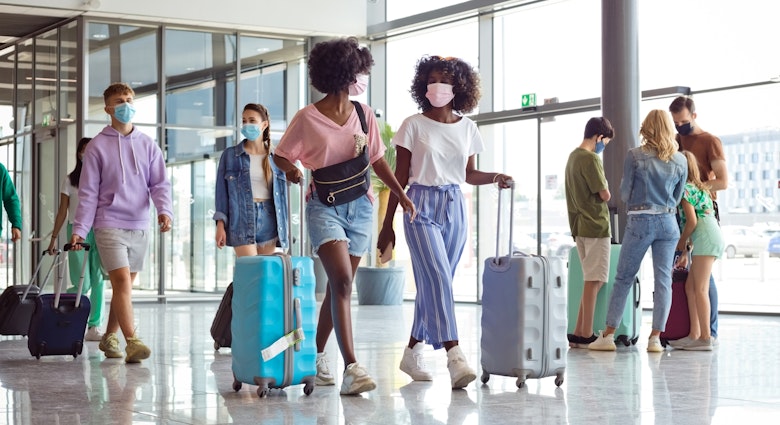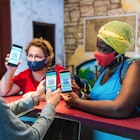
May 10, 2022 • 4 min read

Oct 18, 2021 • 3 min read

France has extended the requirement of its health pass to children between the age of 12 and 17 ©Nicola Williams
France recently extended the requirement of its health pass or pass sanitaire to children between the ages of 12 and 17. This means that anyone over the age of 12 must present proof of vaccination, recovery or a negative COVID-19 test to enjoy many tourist activities such as eating in restaurants, visiting the Louvre, the Eiffel Tower and theme parks like Disneyland Paris.
If you have a half-term break or family holiday to France planned this fall and your children or any minors accompanying you aren't vaccinated, it could make things tricky. That's because you'll need to present a health pass to get into pretty much every venue in France. The health pass is a QR code that indicates the holder is vaccinated or has recently recovered from COVID-19 (at least two weeks ago and no more than six months ago). Non-vaccinated people can show proof of a negative COVID-19 test result, but that test must be taken within 72 hours. That means, if you're visiting France for a week or longer, those who aren't vaccinated will essentially need to get tested in a pharmacy or health clinic every three days or so.
Tests are no longer free and generally cost €25 for a rapid antigen test carried out in a pharmacy, €5.20 for a self-testing kit and about €44 for a PCR test. If you or any member of your group or family needs to be regularly tested, the cost of the trip could significantly increase over time.

Health passes are required in most venues. You'll need to present them at restaurants and cafes, whether you're sitting indoors or outdoors on the terrace. They're also required in bars, clubs, museums, theaters, cultural attractions, large shopping malls and theme parks. If you're traveling from one part of France to another, you'll need them to board long-distance trains and domestic flights.
Under French rules, the following vaccines are allowed: Pfizer, Moderna, AstraZeneca–including Covishield–or Johnson & Johnson. The final dose of the vaccine must be taken no less than seven days prior or, in the case of the one-shot vaccine, no less than four weeks.
Read more: Best things to do with kids in France
The health pass rule kicks in for anyone over the age of 12 (with a grace period of two months). If you're traveling to France from a European Union country or any country signed up to the EU digital COVID cert program, you can present either the paper or digital version of the cert at venues where the health pass is required.
If you're traveling to France from a non-EU country you can register for a health pass through a dedicated online system that's available in French and English. Each person–including those between 12 and 17–must complete the form and provide the supporting documents which include a PDF, PNG or JPEG copies of their passport, official vaccination certificate and flight tickets. Once they're submitted through the online system, you'll receive a QR code in about three days which can be printed out and presented at places where the health pass is required.
Since the introduction of the health pass, infection rates are steadily decreasing across France and 67.2% of the population is fully vaccinated to date, according to Our World In Data.
You might also like:
Top family-friendly ski trips in the French Alps
Best things to do with kids in Paris

Air Travel
Spain and Italy keeping face covering on flights, despite Europe dropping mask mandateMay 16, 2022 • 4 min read

May 10, 2022 • 4 min read


Apr 1, 2022 • 4 min read

Mar 31, 2022 • 8 min read


Feb 14, 2022 • 2 min read

Feb 3, 2022 • 3 min read

Jan 26, 2022 • 5 min read

Jan 21, 2022 • 4 min read